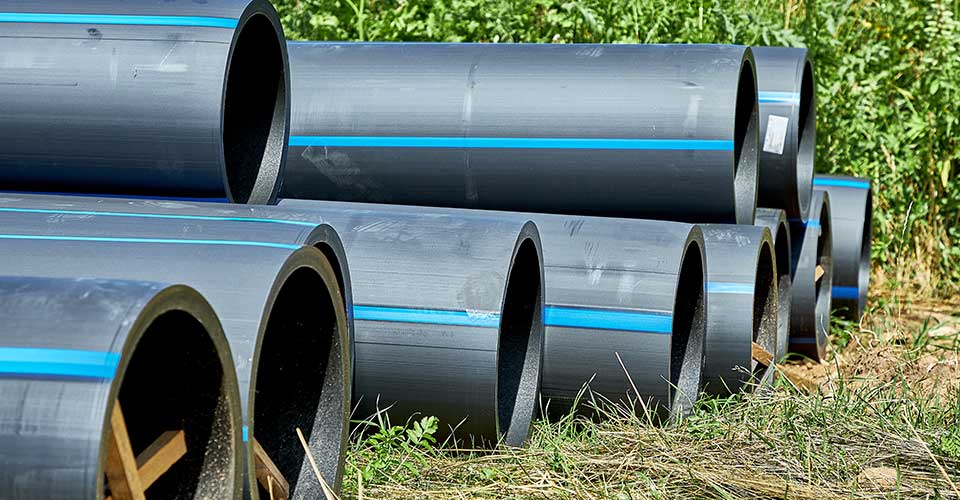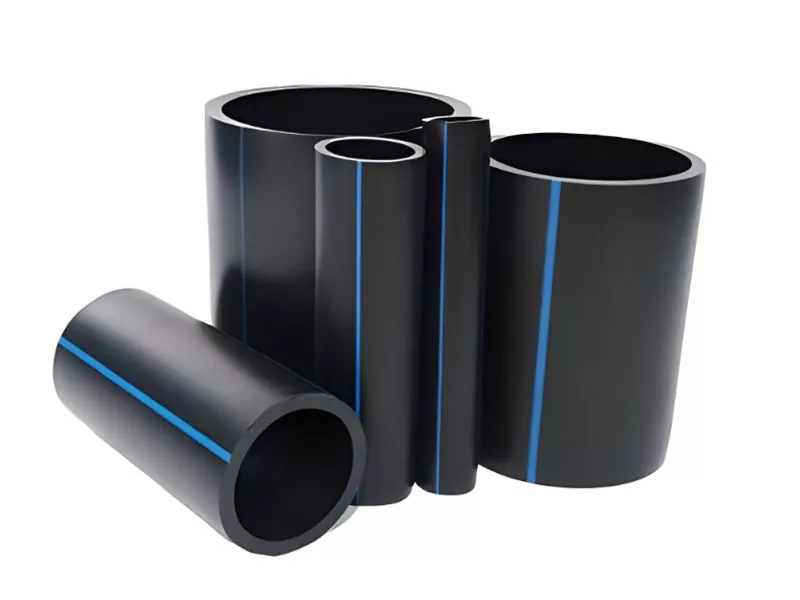How Midland TX HDPE Pipe Fittings in Stock Support Local Projects
Understanding the Key Advantages of HDPE Pipeline for Water and Wastewater Administration
Using HDPE pipeline in water and wastewater management provides numerous advantages that merit factor to consider. Its remarkable toughness and lengthy lifespan make it a preferred option for numerous tasks. Additionally, the product's resistance to deterioration and chemical damage enhances its integrity in different environments. However, the advantages expand beyond just longevity and resistance. Exploring its cost-effectiveness and ecological influence reveals also much more engaging reasons for its widespread fostering in modern facilities
Phenomenal Toughness and Durability

HDPE pipe stands out for its phenomenal durability and long life, making it a recommended selection in water monitoring systems. Built from high-density polyethylene, these pipelines can withstand considerable pressure and stress, guaranteeing dependable performance with time. Their durable nature allows them to withstand severe ecological conditions, including temperature changes and dirt movements, which can cause other materials to fail.
The lifespan of HDPE pipelines frequently exceeds 50 years, providing an affordable option for communities and markets alike. Furthermore, the product's light-weight homes simplify installation, decreasing labor costs and durations. This toughness decreases the need for constant repair work or replacements, further enhancing its financial allure.
In water monitoring applications, the integrity of HDPE pipes suggests fewer disruptions and boosted service connection, making them indispensable to lasting infrastructure development. The combination of longevity and longevity strengthens HDPE's duty as a keystone in efficient water monitoring services.

Resistance to Rust and Chemical Damage
While numerous products catch deterioration and chemical damage gradually, HDPE pipes exhibit amazing resistance, making them excellent for numerous water monitoring applications. This resilience stems from the molecular structure of high-density polyethylene, which is inherently non-reactive and does not corrode like metals or weaken from direct exposure to extreme chemicals. Consequently, HDPE is extremely effective in settings with hostile substances, such as wastewater systems that may contain acids, bases, and natural solvents.
In addition, HDPE pipelines can hold up against ecological variables such as dirt acidity and saline problems, better improving their suitability for diverse applications (hdpe pipe fittings Midland TX). Their ability to maintain architectural stability in time minimizes the risk of leaks and failures, which is important in ensuring the safety and security and reliability of water distribution and wastewater monitoring systems. As a result, the resistance to deterioration and chemical damages substantially adds to the general performance and longevity of HDPE piping options
Cost-Effectiveness and Economic Advantages
When considering the financial effects of water administration systems, the cost-effectiveness of HDPE pipes becomes apparent. These pipelines offer reduced setup and maintenance costs compared to typical products like steel or concrete. Their lightweight nature streamlines transport and installment, resulting in minimized labor expenditures. Additionally, HDPE pipelines exhibit a long life-span, typically going beyond half a century, which equates to less replacements and long-term financial savings.
The resistance of HDPE to corrosion and chemical damage lessens the need for expensive repair services and substitutes. The pipes additionally support reliable water circulation, reducing power costs related to pumping systems. By reducing leakages and water loss, HDPE pipelines add to significant economic advantages for districts and industries alike. Generally, the first financial investment in HDPE piping can produce significant financial returns over the life expectancy of the water management system, making a knockout post it a prudent selection for sustainable framework development.
Ecological Sustainability and Reduced Effect

Versatility and Adaptability in Installment
Due to their special buildings, HDPE pipelines supply impressive flexibility and flexibility in installation, making them sewer pipe cleaning ideal for a variety of applications. Their light-weight nature allows for much easier handling and transportation, minimizing labor prices and installation time. HDPE pipes can be bent and formed to fit different surfaces and job demands, which is particularly beneficial in challenging atmospheres.
In addition, their resistance to deterioration and chemical damage enables for installment in varied settings without the requirement for specialized protective finishings. The capability to fuse joints develops a constant, leak-free system, enhancing the general stability and integrity of the installment. HDPE's adaptability also accommodates ground motion, decreasing the risk of damages in locations prone to changing dirt. In general, these qualities make HDPE pipes not only functional however likewise a favored option for water and wastewater administration systems.
Frequently Asked Concerns
Exactly How Does HDPE Pipe Compare to PVC in Water Administration Applications?
HDPE pipe offers premium adaptability, resistance to corrosion, and durability contrasted to PVC. Its lighter weight facilitates much easier installment, while its long have a peek here life-span minimizes replacement prices, making HDPE a favored selection in water management applications.
What Is the Lifespan of HDPE Water Lines Under Typical Conditions?
Under normal conditions, HDPE pipes can have a life expectancy ranging from 50 to 100 years. Their resilience and resistance to deterioration add to their lasting performance in various applications, making them a reputable choice for framework.
Are HDPE Piping Recyclable After Their Life Span?
Yes, HDPE pipelines are recyclable after their life span. custom hdpe pipe manufacturing Midland TX. They can be refined and repurposed into brand-new products, significantly lowering environmental impact and advertising sustainability within the industry, making them an environmentally friendly choice for piping solutions
What Is the Installment Process for HDPE Pipes?
The installation procedure for HDPE pipelines includes site preparation, trenching, pipe combination or mechanical signing up with, backfilling, and stress screening. Proper strategies assure a resilient and efficient system for transporting water and wastewater successfully.
Can HDPE Pipes Be Utilized for Both Potable and Non-Potable Water Solutions?
Yes, HDPE pipelines can be made use of for both safe and clean and non-potable water systems. Their flexibility, durability, and resistance to corrosion make them ideal for numerous applications, guaranteeing secure and effective transport of water in different contexts.